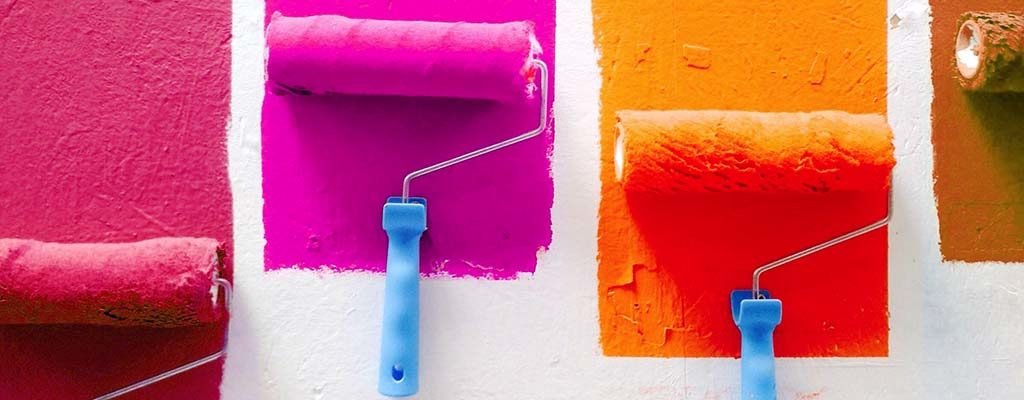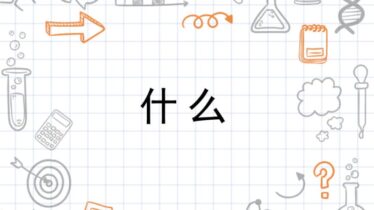Guide to Chinese Modal Particles
Sentence-final particles — or modal particles (语气助词yǔ qì zhù cí) — are very common in the Mandarin language. If you’d ever received text messages from Chinese by chat application, you might find there are various ways to say ‘OK’.
- You asked your Chinese colleague to do some work, they might reply ‘好的 hǎo de’
- You asked your Chinese friend to go to a night club, they might reply ‘好啊 hǎo a’
- You asked your Chinese boyfriend or girlfriend to get you something when they were watching some videos, they might reply ‘好吧 hǎo ba’
All of the phrases above can be translated into ‘OK’, but what is the difference?
The first thing you should know is: the words ‘的’, ‘啊’, ‘吧’ above are Chinese modal particles. They are always used at the end of sentences to indicate mood or attitude. It is quite hard to translate modal particles because they do not change literal meanings, but they do change implications or implicit meaning.
Here are four common moods in Chinese you should know:
- Interrogative / questioning mood
- Affirmative / conforming mood
- Exclamative mood
- Imperative / commanding mood
Modal particles for questioning mood
As long as you learned some Chinese, you will know modal particles indicating interrogative mood.
吗Ma
‘吗’ must be the very first modal particle you learned. It will be added to a statement at the end to turn the sentence into a yes-or-no question, and it is often used to ask for advice or affirmation.
For example:
- 对吗?(Is it right?)
- 好吗?(Do you agree?)
呢Ne
‘呢’ might be the second modal particle you learned at the beginning level. A very common way to use ‘呢’ is to return a question after being asked it. For example:
- 你是哪国人?(Where are you from?)
- 我是中国人,你呢?(I’m from China, what about you?)
‘呢’ can also be used to ask where is someone or something. The structure is: Subject + 呢? For example:
- 我的手机呢?(Where is my phone?)
- 他给我的书呢?(Where is the book he gave me?)
吧Ba
‘吧’ is often used when people are making assumptions, it indicates speakers are checking if their guess is correct . The structure is: a statement + 吧. For example:
- 你是中国人吧?(You are Chinese, right?)
- 你不喜欢中国菜,对吧?(You don’t like Chinese food, do you?)
Affirmative mood particles
的De
‘的’ is used most to express affirmation or agreement, such as ‘是的’, ‘好的’, ‘对的’. It indicates the speaker is polite and calm, and it can help encourage listeners to go on with their words.
The structure of using ‘的’ is: verb/adjective + 的. For example:
Q:你想吃中国菜吗?(Do you want to eat Chinese food?)
A:想的。(Yes.)
Q:你觉得那件衬衫漂亮吗?(Do you think the shirt is beautiful?)
A:漂亮的。(Yes, it is.)
呢Ne
‘呢’ is often used to emphasize the affirmative mood, especially when speakers are telling something in process. The common structure is: Someone 在 Verb Object 呢.
For example:
别说话,他在睡觉呢。(Shh, he is asleep.)
她还在开会呢,你一会儿再来吧。(She is still in a meeting, please come later.)
As you can see in the situations above, ‘呢’ can help you sound more confident and convincing to others.
了Le
Our old friend ‘了’ can also be used to make an affirmation. It is more used to make closure or conclusion. Common phrases are ‘好了”可以了”行了”够了”算了’.
For example:
好了,我的话说完了。(OK, that’s all I have to say.)
可以了,我们今天就到这儿吧。(OK, let’s stop here today.)
行了,我觉得不用再看了。(OK, I don’t think I need to check any more.)
够了,你闭嘴吧。(That’s enough, shut up.)
Read here for more on how to use ‘了 (le)’ in Mandarin Chinese.
嘛Ma
‘嘛’ shares the pronunciation with ‘吗’, but is different from ‘吗’. First, when the speaker feels what he/she is saying is obvious, they can use ‘嘛’ at the end of a statement. For example:
- 你汉语说得很好嘛。(Everyone can tell that you are good at Chinese.)
- 您是老师嘛,我当然得尊敬您。(You are the teacher, of course, I should show respect to you.)
Second, it can be used for topic-marking. Unlike the first use above, the following comment after the topic may or may not be one the speaker feels is obvious. And it is often used to soften the atmosphere. For example:
- 出去玩儿嘛,开心最重要。(If you are hanging out, the most important is to have fun.)
- 年轻人嘛,总是喜欢流行的东西。(For young people, it is common that they like popular things.)
Modal particles for exclamative mood
Chinese modal particles can help your expression become dramatic even in written language.
啊A
The most common one here is ‘啊’. Add ‘啊’ to a statement at the end can turn the sentence emotional. For example:
- 好啊!(Great!)
- 这里没人啊!(There is no one here!)
- 我们走了啊。 (We are leaving!)
- 我没喝你的咖啡啊。(Hey, I didn’t drink your coffee!)
Other modal particles for exclamative mood
If you are confused with ‘呀(ya)”啦(la)”哪(na)”哇(wa)’ when reading Chinese text message, here is some good news to you. In fact, they are completely the same as ‘啊’. The reason why they are written in different words is ‘sound-linking’.
Take the examples above, the sentences can also be written as:
- 好哇!Hǎo a → Hǎo wa
- 这里没人哪!Zhèli méi rén a → Zhèli méi rén na
- 我们走啦。Wǒmen zǒu le a → Wǒmen zǒu la
- 我没喝你的咖啡呀。Wǒ méi hē nǐ de kāfēi a → Wǒ méi hē nǐ de kāfēi ya
Imperative mood or commanding mood
When you are making imperative sentences, you may ask the listeners to do something or not to do something.
吧Ba
‘吧’ is often used to giving suggestion or even command. It can help soften the tone, so you would sound more polite.
For example:
现在不早了,我们回家吧。(It’s late, let’s go home.)
你去问问老师吧。(You can go to ask the teacher.)
啊A
‘啊’ along with ‘呀(ya)”啦(la)”哪(na)”哇(wa)’ can be used to emphasize a prohibition.
你别在这里抽烟啊/哪!(Don’t smoke here!)
你别说话了啊/啦!(Stop talking!)
你不要去啊/哇!(Don’t go!)
你不能随便相信别人啊/哪!(You can’t just trust others!)
Do you feel clearer about Chinese modal particles?
This is just a quick guide to knowing how Chinese modal particles work in sentences. The best way for you to know more about them is to communicate more with real Chinese people, and pay attention to their words to feel how they are acting or reacting in communication.



